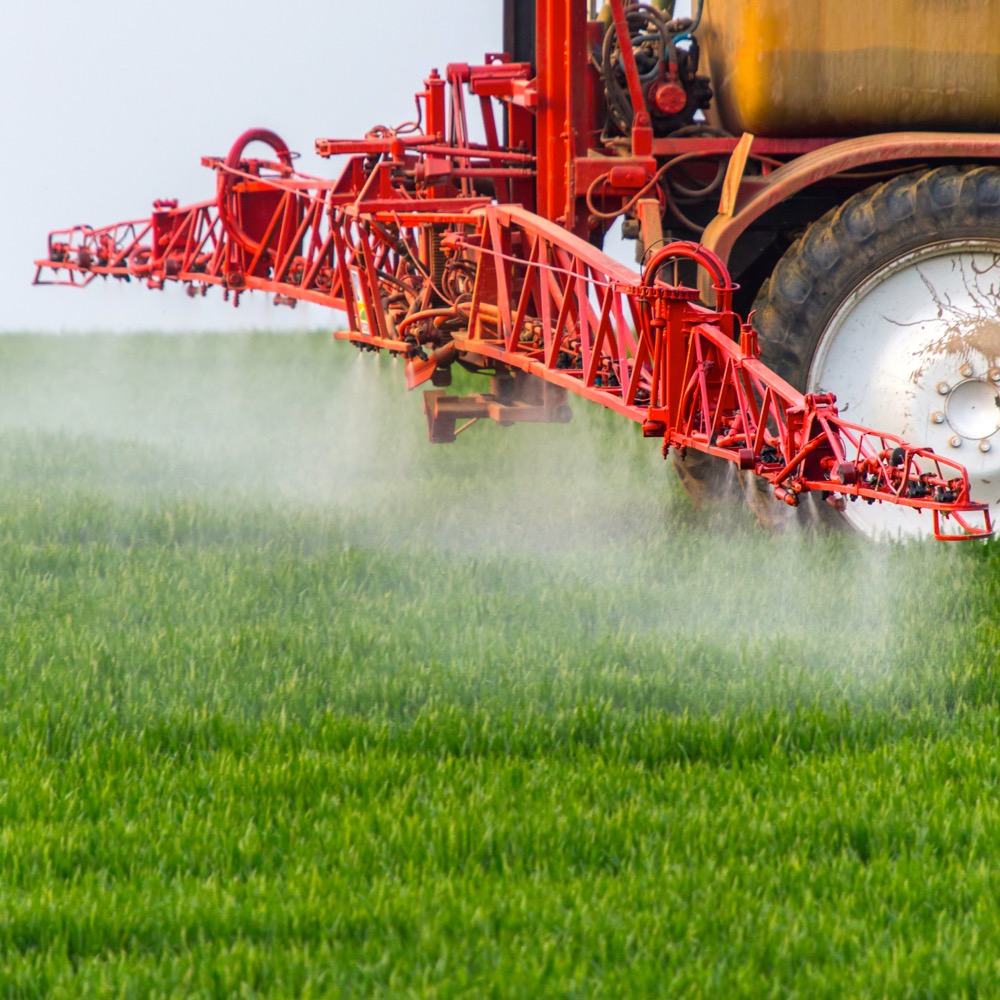Last September I warned readers of a growing public backlash against glyphosate herbicide, and I wrote of the co-ordinated attack on glyphosate by Avaaz, an online activist community that is claiming credit for the refusal by European regulators to renew the licence for glyphosate, instead only granting an 18-month extension to the expiring licence.
But now glyphosate is facing an even greater threat, this time coming at the hands of U.S. personal injury lawyers. These law firms are seeking to represent persons who have used or been exposed to Roundup herbicide and have since developed non-Hodgkin lymphoma or other types of cancers.
Read Also

When hackers hit the barn
As Canadian farmers embrace automation, cybersecurity is the new front line. Here’s how to protect your on-farm data from digital threats.
The crux of these cases is stated in the U. S. Judicial Panel on Multidistrict Litigation filing: “Roundup, a widely used glyphosate-based herbicide manufactured by Monsanto Company, can cause non-Hodgkin lymphoma and that Monsanto failed to warn consumers and regulators about the alleged risks of Roundup.”
- Read more: WHO cancer agency asked experts to withhold glyphosate documents
- Read more: U.S. EPA says glyphosate likely not carcinogenic
Plaintiffs are coming forward from across the U.S. claiming their cancers were caused by their exposure to Roundup. Some of the plaintiffs are field crop farmers such as Larry Domina and Robert Dickey of Cedar County, Nebraska, and Royce Janzen of York County, Nebraska. All three regularly used Roundup in their corn and soybean operations and all have developed non-Hodgkin lymphoma.
A fourth Nebraskan, Dodge County agronomist Frank Pollard is also named in the May 16, 2016 lawsuit. In his work as an agronomist, he was exposed to Roundup in storage, in the mixing for application, and in fields after application.
Plaintiff Lynda K. Patterson of Illinois attributes her stage-4 cancer diagnosed in 2014 to the use of Roundup in her garden and landscaping over more than a decade.
Jack McCall’s widow has also launched a wrongful death lawsuit against Monsanto. McCall had used Roundup for 30 years on his 20-acre fruit and vegetable farm near Cambria, California. He died in December of 2015 from a rare form of non-Hodgkin lymphoma.
In the McCall lawsuit, a claim is even made for the death of the family dog which had died a few years earlier from lymphoma.
The lawyers
The McCall case is being handled by Baum Hedlund Aristei & Goldman, a consumer law practice out of Los Angeles. In a November 2016 interview, Robin McCall, the firm’s director of public relations and marketing stated, “So far, we represent about 140 people since we started accepting cases in February of 2016. We expect to represent at least 500 people in this litigation and continue to get new cases every week.”
When I attempted to contact McCall in early February, Baum Hedlund Aristei & Goldman attorney Brent Wisner provided the following information:
“We presently have around 200 clients and we are reviewing many more each day.
“I know that, among the various firms litigating these cases, at least 3,000 people have retained counsel. Not all of those cases are filed, but at some point, whether in state or federal court, the cases will be filed.”
The email continued:
“Over 130 Roundup cases have been filed across the nation in both state and federal courts. In October 2016 the U.S. Judicial Panel on Multidistrict Litigation (JPML) decided that all of the Roundup cases filed in federal courts would be centralized under one judge for purposes of the determining liability against Monsanto. So far at least 49 cases have been transferred or are in the process of being transferred to U.S. District Judge Vince Chhabria of the Northern District of California in San Francisco. The MDL is officially named In Re: Roundup Products Liability Litigation, 16-MD-2741.
“The litigation is proceeding ahead aggressively. To date Monsanto has produced several millions of pages of documents, and depositions of Monsanto employees are being conducted at a fairly quick pace. The Court decided to bifurcate discovery on the issue of general causation. That means the first phase of discovery is focusing on whether Roundup exposure causes non-Hodgkin lymphoma. So, for now, there is a massive effort underway by numerous law firms to review the documents, take depositions, and prepare our experts on the issue of general causation. Once that is completed, we will turn to the issues of specific causation, and our clients will have a chance to tell Monsanto how this product has fundamentally changed their lives.”
In late February, the two sides also appeared in federal court in San Francisco to provide expert testimony on how to evaluate the scientific information that will be at the core of the case.
Make no mistake, these are not nuisance lawsuits by small, fly-by-night law firms. Domina Law Group represented the Nebraskan landowners against the Keystone XL pipeline,and it won a $1.26 billion verdict for cattle ranchers against Tyson Fresh Meats (later overturned in appeals court). Domina Law is representing corn growers in lawsuits against Syngenta over the five-year Chinese ban of U.S. corn due to the contamination of corn shipments with a Syngenta variety not approved for sale.
Domina Law has partnered with Weitz & Luxenberg of New York in the Roundup suits. “Weitz & Luxenberg is the leader in asbestos and mesothelioma litigation with $8.5 billion in asbestos verdicts and settlements in 36,000 cases,” according to the firm’s website.
In September and October of 2015, Weitz & Luxenberg had already begun initiating personal injury lawsuits over Roundup in California and Delaware, and the firm has since filed cases in other states and federally.
Weitz & Luxenberg’s website also states: “Monsanto, however, fails to disclose that use of and/or exposure to Roundup can cause serious health consequences.”
The website goes on to invite cancer victims who have had exposure to Roundup to contact the firm. “If you have been exposed to glyphosate, Roundup or both, and have developed non-Hodgkin lymphoma or another type of blood cancer, you may be entitled to compensation from the product’s manufacturer. Further, if a member of your family died because of Roundup or other glyphosate-containing products, there might also be compensation for loss of consortium and wrongful death.”
The Schmidt Firm, PLLC is another national plaintiff law firm actively recruiting clients for their action against Monsanto. Their website states: “The Schmidt Firm, PLLC is currently accepting Roundup-induced injury cases in all 50 states. If you or somebody you know was diagnosed with non-Hodgkin lymphoma, you should contact our lawyers immediately for a free case consultation.”
The WHO ruling
The common link among all of these cases, and all of the law firms, is the World Health Organization’s International Agency for Research on Cancer (IARC) classification in March 2015 that Roundup is probably a carcinogen (class 2A).
In fact, Domina Law Group even stresses on their website that if you have been diagnosed with cancer and believe Roundup is the cause, you should act immediately because: “Your time to recover from your non-Hodgkin lymphoma may almost be up — you must act now! The WHO (World Health Organization) released its findings on July 29, 2015, that the herbicide glyphosate is a probable carcinogen for humans. Glyphosate/Roundup have been linked to non-Hodgkin lymphoma. If you have been diagnosed with non-Hodgkin lymphoma the time to file your case to recover for your cancer may expire on July 29, 2016. You must contact a lawyer today before time runs out.”
The 2A classification has given personal injury lawyers the ammunition they need to sue Monsanto, the company which first marketed Roundup herbicide. If they can prove that Monsanto knew or should have known Roundup could pose a risk to human health and failed to warn consumers of the danger, the pay-day could be astronomical.
And the stars may be lining up in the plaintiffs’ favour. After all, the combining of all U.S. federal cases for determination if Roundup actually causes cancer has been transferred to California federal court. It is important to know California became the first state to officially label Roundup as a carcinogen based on the IARC classification. The California Office of Environmental Health Hazard Assessment has already added Roundup to its list of chemicals known to cause cancer, birth defects, or other reproductive harm.
Despite scant scientific evidence, can a fair trial even occur when public sentiment is strongly against Monsanto, GMOs, and glyphosate?
Nearly every major regulatory body in the world including European Food Safety Authority (EFSA), the Food and Agricultural Organization (FAO), Germany’s Institute for Environment and Human Security (BfR), and the U.S. Environmental Protection Agency (EPA) have concluded that glyphosate is unlikely to pose a carcinogenic risk to humans.
Unfortunately, little to no attention is being paid to the value glyphosate adds to agriculture. It does not matter that glyphosate has enabled farmers to zero till. Or that glyphosate has enabled farmers to reduce their use of other, much more dangerous pesticides.
While the IARC ruling should prompt scientific review of glyphosate and its effects on human health, it should not be the sole evidence needed to determine the safety of glyphosate. After all, in the same IARC Class 2A classification as glyphosate we also find high-temperature frying, emissions from household combustion of biomass fuel (primarily wood), consumption of red meat, and very hot beverages. Even shift work is included in the 2A classification as a probable carcinogen. Yet we do not see warning labels on frying pans, fireplaces, or coffee makers.
The pending litigation is potentially the biggest issue facing farmers today. A verdict against Monsanto has the very real potential of paving the way for the banning of glyphosate altogether.
















